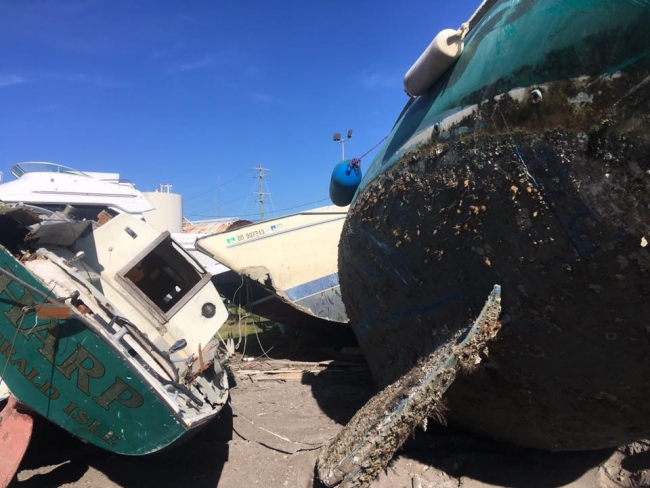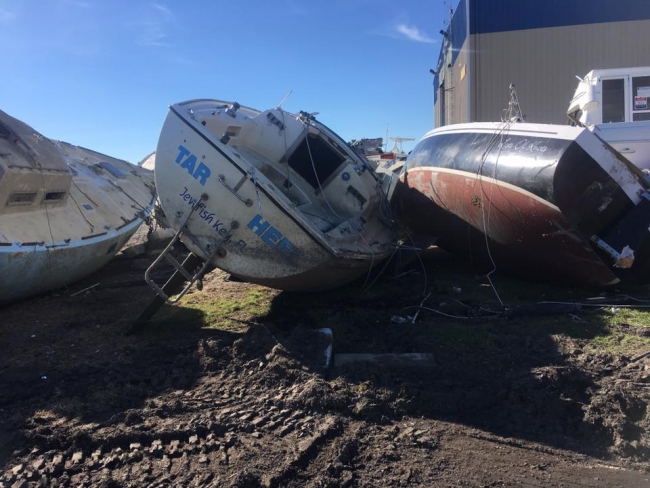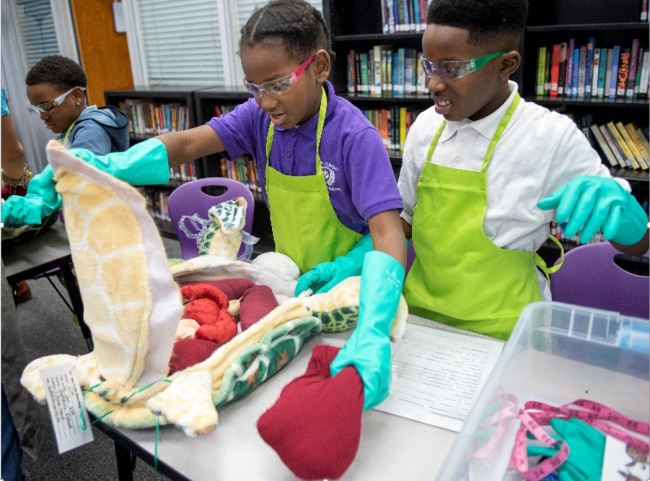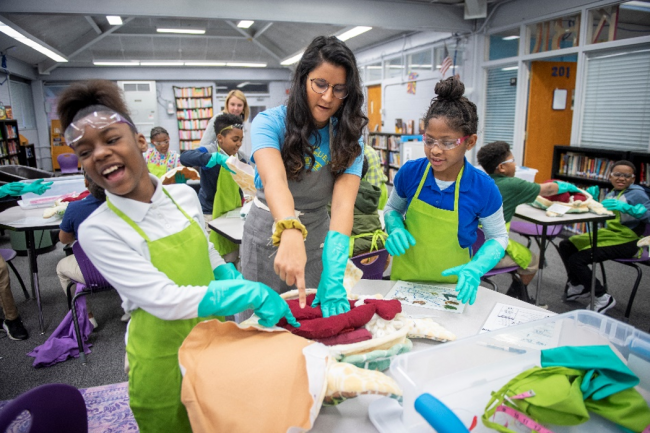The NOAA Marine Debris Program’s Southeast region, which spans Georgia, South Carolina, and North Carolina, includes gorgeous sandy beaches, expansive meandering marshlands, diverse wildlife, significant history, and lots of southern charm. While sweet tea, hospitality, downhome sayings, and “y’all” are signatures of the south, so too are issues with marine debris. Y’all, it’s enough to make me want to pitch a hissy fit. Fortunately, our partners in the Southeast are leading the way on tackling marine debris through prevention projects and helping communities recover from hurricanes and other natural disasters.
The North Carolina Coastal Federation (NCCF), with support from a NOAA Marine Debris Removal grant, is partnering with the North Carolina Division of Coastal Management and local governments in Pender, New Hanover, and Brunswick Counties, as well as community volunteers, to remove Hurricane Florence debris. For future preparedness, the NCCF plans to develop best management practices to guide others in protecting important natural resources while removing large amounts of storm debris. They will also work with local municipalities to create model resilient building codes for marine construction to help new development withstand the effects of future hurricanes. Stay tuned to hear more about the project progress from the grantees leading this effort on December 19.
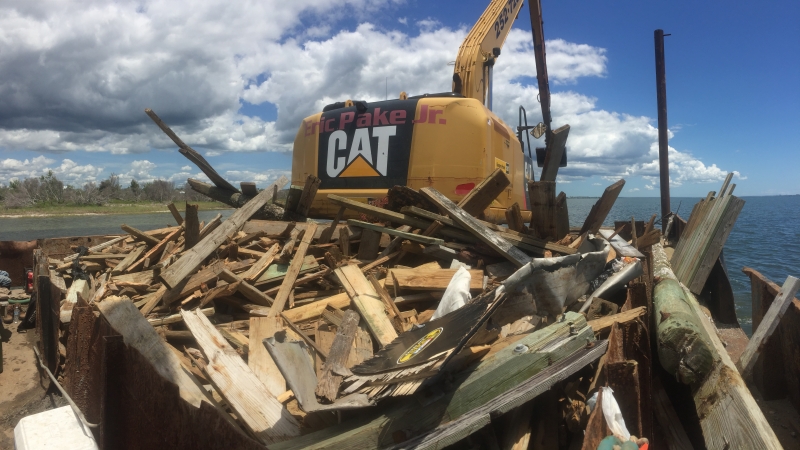
Additionally, the Town of Beaufort, North Carolina has teamed up with NC Coastal Reserve and National Estuarine Research Reserve and Atlantic Coast Marine Group, with the support of a NOAA Marine Debris Program Removal grant, to remove abandoned vessels, derelict fishing gear, and other medium and large debris items. The BoatUS Foundation is also developing a professional documentary video to showcase the project and debris removal efforts in Beaufort Harbor. Removing these items from the local environment protects wildlife, water quality, as well as access to recreation in the Town of Beaufort and Rachel Carson Reserve’s waters. To date, they have removed 124,558 pounds of marine debris comprised of vessels, illegal moorings, pilings, and other construction debris. The Town also passed an ordinance giving the authority to remove abandoned and derelict vessels within the town limits, which allowed them to remove 11 vessels after Hurricane Florence.
The University of North Carolina Wilmington (UNCW) MarineQuest, with the support of a NOAA Marine Debris Prevention grant, continues its second year of educating youth in southeastern North Carolina about the impacts of marine debris on sea turtles through their program, Turtle Trash Collectors (2TC). During 2TC programs, youth participate in a hands-on simulation of a sea turtle necropsy, or animal dissection, and learn that marine debris can have major impacts on sea turtles, even causing death. Since September 2018, they’ve engaged over 9,000 third, fourth, and fifth grade students, and visited 56 schools.
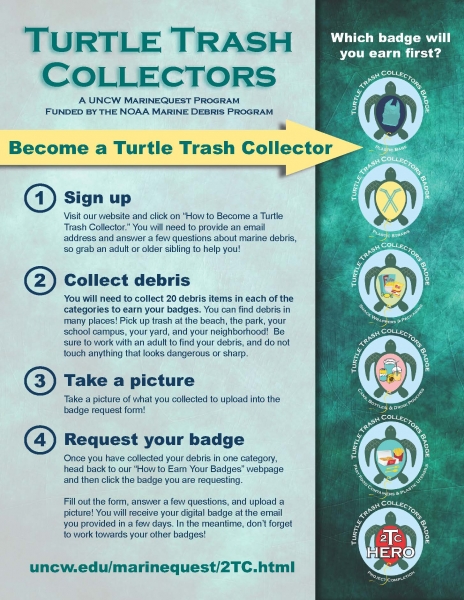
This creative team also has a digital badge program that YOU can participate in! Join the Turtle Trash Collector digital badging program to start earning badges by collecting debris in your community. By cleaning up in your neighborhood, at the park, or at the beach you can keep trash from ending up in the ocean. It’s up to all of us to make a difference in preventing marine debris, so become a Turtle Trash Collector today!
The NOAA Marine Debris Program is proud of all our Southeast partners and the amazing work Y’ALL are doing to keep our stomping grounds clean and the sea free from marine debris.

